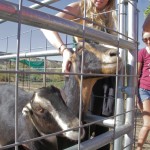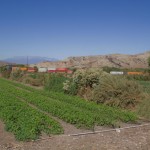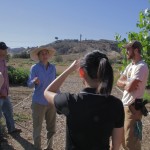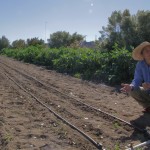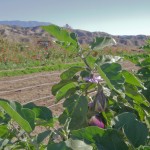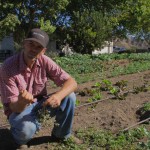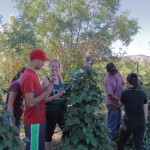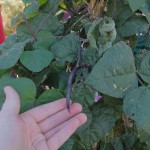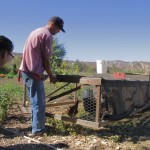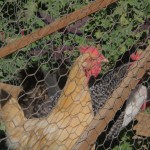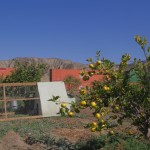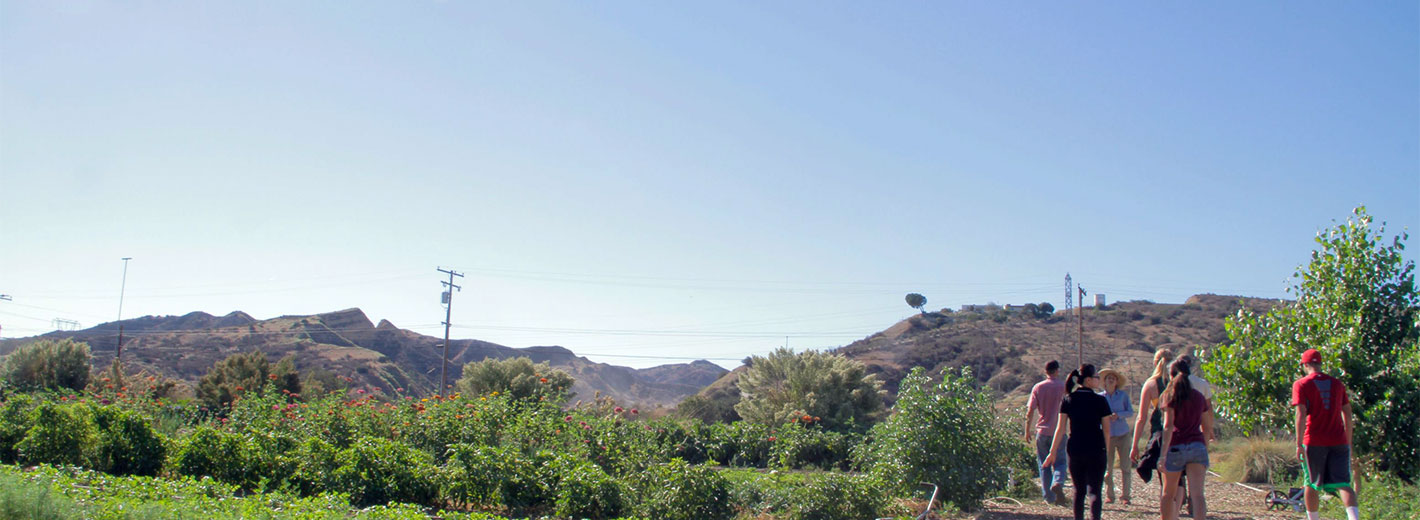
Three Sisters Farm Flourishes Even in Drought-Starved Southern California
Three hours east of L.A. is the University of Redlands. East of Redlands lies the Timoteo Canyon; a beautiful landscape featuring intense dry heat even in October. To a Midwesterner like myself, this seemed like desert country, not farmland. However, a small group of students from Redlands and I were on our way to a small but dynamic organic farm in the canyon called Three Sisters, run by Abby and Jason Harned.
In 2007 Abby and Jason quit their day jobs, bought 20 acres of land in the San Timoteo Canyon, built a straw bale home on the property, moved in, and began farming. Their progress in that span of time is really amazing to see. They run a CSA, sell at farmers’ markets, and supply Redlands and other Bon Appétit cafés with their fresh organic produce.
The Harneds welcomed us to their farm, showed us their variety of crops, and taught us about their growing practices. The farm, which was bursting with life, is based on the traditional Native American Three Sisters garden — the beneficial coexistence of squash, beans, and corn — but they grow much more than those three staple crops, including eggplant, tomatoes, herbs, fruit trees, and salad greens as well as goat milk and pastured eggs.
During our tour, I was surprised to see several rows of crops partially harvested. They explained that they harvest incrementally every day in a way that satisfies their CSA customers’ needs, but also leaves plenty of the crop remaining for harvesting at a later date. Carefully managing their harvest allows for a stable flow of produce to their customers. Their fenceless farm also used tried and tested old-world techniques to great effect. Flowering perennials attracts pollinators and beneficial insects. Abby and Jason have also installed native habitat for birds and other wildlife because promoting bio-diversity builds stronger soils and healthier plants.
The interconnectedness of the garden was plain to see and the students had a great time getting to taste some of the produce picked right in front of them. Jason let us sample purple pole beans, which had not only a unique look but a great flavor. He also showed us their mobile chicken coop which was both practical and creative, as when it was moved around the farm, helped supply fertilizer for the crops. Their two children ran around happily while we toured, occasionally joining with us but following their own beat around the farm.
Standing in the dry heat of the Inland Empire in the middle of an extreme Californian drought, all I could think about was water access and usage. To my surprise, Jason said it wasn’t that big of an issue for them, since their land sits on a plentiful water table. They draw as much water from their well as they need, but their needs are below the well’s daily capacity. With that settled, it seemed like Abby and Jason had it all — a home on fertile land that they owned, a small but growing family business, and two young children to help out on the farm. What our food system would be like if more people like Abby and Jason took the plunge and started farming in a responsible, environmentally beneficial way? Their overwhelmingly positive example certainly made me and the students inspired to want to try.
